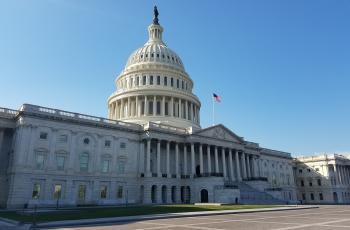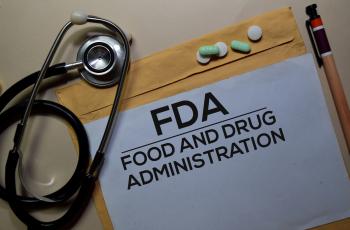News Updates - 3/19/2021
With this series we will bring you the latest news in diabetes advocacy and policy. This week we cover news updates in insulin affordability, FDA, government and legislation, stigma and society, and insurance and access to care.
Insulin Affordability
Biden’s nomination for the US Patent and Trademark Office could help to lower drug prices
Whoever President Biden nominates to lead the US Patent and Trademark Office will play a key role in drug pricing. A lack of pricing competition due to patented drug monopolies can drive up prices. Insulin and other diabetes drug pricing could benefit from a director that cracks down on patent abuse and focuses on drug affordability.
Why it matters: According to STAT, “While patents can be essential for incentivizing the research and development spending required to discover new drugs, they can also be abused by lengthening the term of a drug’s monopoly well past what Congress intended.” New patents for lower-cost generic drugs creates more pricing competition and can lower diabetes drug costs.
Insulin makers win a significant round in MN lawsuit accusing them of racketeering
A 2018 lawsuit filed by the Minnesota Attorney General accused the three major insulin manufacturers of price gouging. More recently, a US court judge dismissed accusations that the insulin manufacturers engaged in a “pattern of racketeering” and were violating false advertising laws.
Why it matters: Insulin is unaffordable for many people with diabetes. Because of this, 25 percent of people with diabetes are forced to ration their insulin to make ends meet. Making insulin more affordable requires a multistakeholder approach where insulin manufacturers, insurance companies, pharmacy benefit managers, and the government have to commit to making the life-sustaining drug accessible. This lawsuit is Minnesota’s way of holding drug manufacturers accountable for insulin prices.
What you can do: Join ADA in advocating for lower insulin prices here. To learn more, read this Beyond Type 1 resource for more information on insulin pricing in the US.
Government and Legislation
There is growing support for permanent telehealth expansion
In a recent House subcommittee panel on telehealth, there was bipartisan support for permanently expanding telehealth access. Many policymakers are in favor of eliminating geographic and originating site telehealth requirements and allowing Medicare to reimburse for telemedicine.
Why it matters: Recently proposed telehealth legislation signals the growing momentum towards permanent telehealth expansion. Telehealth was temporarily expanded during the COVID-19 pandemic to help people safely access healthcare. With more people getting vaccinated, we are approaching the end of the Public Health Emergency and the temporary telehealth expansion. Telehealth can help people with diabetes access healthcare long after the COVID-19 Public Health Emergency is over and telehealth expansion should be made permanent.
What's next: The current Public Health Emergency period is set to end in April, though it will likely be extended. In order to maintain the current level of telehealth access policymakers must pass telehealth legislation before the end of the COVID-19 Public Health Emergency.
What you can do: Join diaTribe Change in advocating for the permanent expansion of telehealth access to keep people with diabetes safe and healthy. Click here to take action.
Recently confirmed HHS secretary faces urgent challenges
The Senate recently confirmed Xavier Becerra as the Biden administration’s HHS secretary. According to STAT, Becerra’s most urgent tasks will be HHS staffing, distributing COVID-19 stimulus funds, finishing Operation Warp Speed, and working to address “lingering” Trump policies.
Why it matters: The head of the HHS has the power to influence federal health insurance programs, medical research, and drug approvals. Becerra will play a key role in access to health insurance, including the expansion of the Affordable Care Act, and diabetes drug and technology approvals.
FDA
When will Biden nominate an FDA Commissioner?
President Biden has yet to announce his nomination for FDA Chief and there has been no public explanation for this delay. According to STAT, this role is difficult to fill because you need to find someone who is qualified and willing to take on the politicized role. The Biden administration said that “the choice of FDA Commissioner is critically important” but has not explained the nomination delay.
Why it matters: Whoever Biden nominates will garner criticism from policymakers because “Politicians want scientific and industry expertise, but they also want a nominee who doesn’t have any financial ties to the industry he or she is about to regulate.” The FDA Commissioner oversees the process of diabetes therapy and technology approval which impacts all people with diabetes.
Insurance and Access to Care
200,000 already enrolled during the ACA special enrollment period
Only two weeks into the Affordable Care Act marketplace special enrollment period, 200,000 people had already enrolled for health insurance. The enrollment period began in February and goes until May 15th. The Biden administration is encouraging all people without access to health insurance to enroll in the ACA marketplace before May 15th.
Why it matters: COVID-related job loss has left many Americans uninsured. This special enrollment period, intended to address the high numbers of uninsured Americans during the pandemic, is proving to be a success. The most recent COVID-19 relief package also provides subsidies to people in the ACA marketplace.
COVID-19 relief bill temporarily expands ACA subsidies
The recently passed pandemic relief package expands subsidies for the Affordable Care Act federal marketplace for two years. These changes to the ACA could give over 1.3 million Americans access to health insurance. Policymakers are recognizing the COVID relief package as the largest expansion to the ACA since it was passed in 2010.
Why it matters: In 2019, 9.2 percent of Americans were uninsured. The pandemic and related job loss has left even more Americans uninsured. Though most people who are uninsured qualify for ACA healthcare coverage, the cost of premiums and deductibles can still be too expensive for many people with diabetes. These subsidies will help people afford ACA marketplace healthcare coverage. and hopefully encourage more people to enroll.
What's next: While these expanded subsidies are temporary and last until the end of 2022, policymakers and advocacy groups are expected to advocate to make this ACA expansion permanent.
Stigma and Society
COVID-19 pandemic illuminates need to tackle obesity
People with obesity are at an increased risk for COVID-19 complications and death compared to the general population. The prevalence of obesity in the US and around the world has fueled the COVID-19 death toll and highlighted the urgency of the obesity epidemic. Countries with the highest rates of obesity also had the highest rates of COVID-19 deaths.
Why it matters: Over 42 percent of the US population has obesity. Obesity drives half of new COVID-19 cases. The obesity epidemic is linked to the high prevalence of heart disease and type 2 diabetes in the US, among other comorbidities. The COVID-19 pandemic was a stark reminder that we will continue to see serious public health consequences if we do not work to address the obesity epidemic.
Vaccine eligibility varies by state for people with preexisting conditions
COVID-19 vaccines are available to some people with preexisting conditions in at least 37 states. However, the eligible health conditions vary by state and the justification for this remains unclear in some areas. People with preexisting conditions, including people with diabetes, are forced to advocate for their vaccine eligibility.
Why it matters: Per the CDC’s recommendations, people with type 2 diabetes are prioritized in the COVID vaccine distribution plan but people with type 1 diabetes are not, despite their risk for COVID complications. However, some states are allowing all people with diabetes to get the vaccine. This can make vaccine eligibility unclear for people with diabetes depending on what state they are in. President Biden recently announced that all Americans will be eligible for the vaccine by May and we hope that people with diabetes can be vaccinated even earlier.


